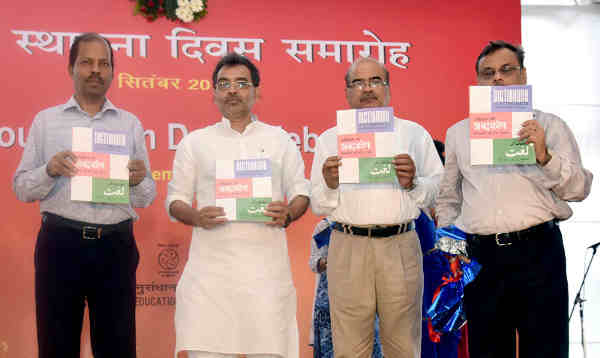Rajnath Singh Reveals India’s Plans to Combat Drug Trafficking

India’s Home Minister Rajnath Singh said that India is vulnerable to narcotic drug trafficking as it is located between two largest opium producing regions of the world: Golden Crescent in the west and Golden Triangle in the east.
He was speaking today in Delhi at the Closing Ceremony of the two-day National Conference on Drug Law Enforcement organized by Narcotics Control Bureau (NCB), Ministry of Home Affairs.
Rajnath Singh said that drug trafficking and abuse pose serious threat to our societies and is matter of serious concern for all of us.
He said that drugs endanger peace, health and stability across regions and it places a heavy burden on public health systems. Hence all of us have to work towards prevention of narcotic drug abuse, Home Minister appealed.
He pointed out that during 2017, various drug law enforcement agencies effected seizure of 1,991 kg Opium, 2189 kg Heroin, 1,96,792 kg Ganja, 2657 kg Hashish and 67 kg Cocaine.
Various agencies also carried out destruction of illicit cultivation of cannabis and opium poppy all over the country, he said.
The Minister expressed concern that involvement of foreign nationals in drug peddling poses another significant challenge of drug trafficking in India. He said, during 2017, 332 foreign national have been arrested in drug cases in India.
He added that these foreign nationals were found involved in trafficking of Cocaine from South America to India via Africa and trafficking of Heroin and Precursor chemicals to South East Asia and Africa.
Highlighting several policy and other initiatives by the government to deal with drug trafficking problem, the Home Minister said, it constituted Narco-Coordination Centre (NCORD) in November, 2016 and revived the scheme of “Financial Assistance to States for Narcotics Control”.
Besides, he said, in 2017, the government approved new Reward Guidelines with increased quantum of reward for interdiction or seizure of different illicit drugs.
The Minister pointed out that for effective coordination with foreign countries including neighboring countries, India has signed 37 Bilateral Agreements / Memoranda of Understanding.
In last four years, he said, India has signed 5 Bilateral Agreements / MoUs with Australia, Singapore, Mozambique, Thailand and Nepal in drug matters.
Photo courtesy: Press Information Bureau






